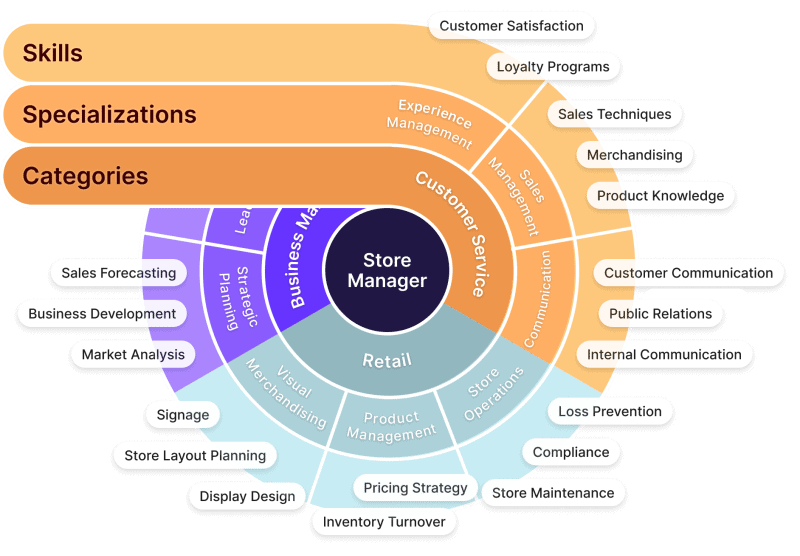I hired my first employee about 13-14 years ago (Lorenzo, if you are reading, I just want to say thank you!) while building my first company.
As I was thinking about writing this article I immediately went back to that first hire to think about everything I’ve learned since then related to people management.
I’ve hired a few hundreds more people (and interviewed about 500-700 people) since then and I made many mistakes: sometimes I’ve seen that immediately and people left the organization because of it, sometimes it took me time to recognize that mistake. And of course, at some point I’ve seen my managers and executives making the same mistakes I made and I’ve spent countless hours learning how to coach them.
Every single time I went back to a single question: what people want?
In this blog post I am trying to share everything I’ve learned about what people really want from their companies. Everything I am saying here comes with a strong and big assumption: you have hired great people and you spent time, resources and energy in finding them and not just someone that was available in the market.
And by the way, this is also our first blog at Anthropos, a new company we are starting that is focused on people. That’s why I thought there couldn’t be a better topic to start this off.
People want to work for companies that have a clear vision
What I’ve learned pretty early on is that people need to buy into your vision and understand it to the point they can explain it to someone else. The best way to understand that is running a team or a company where vision is not 100% clear or where leadership doesn’t communicate it well: people will start asking all sorts of things, will question projects and, in general, they will tend to be more skeptical of any decision is made. The reason why that happens is because they don’t fully understand why they are working on that project, they can’t fully contribute because the vision is not clear and at the same time, every single question that derives from this unclarity turns into a critic or a pessimistic view of the company. I am sure you have been in many meetings where someone said “I don’t know why we are doing this honestly and I thought we were working on becoming X”. Multiple people feeling (and saying) the same is usually a clear sign of a lack of vision.
As CEO communicating your vision is one of your most important tasks. Now, the challenge is that even after several meetings, email and comms where you explain it, you will find people that did not grasp that. It’s normal and you shouldn’t get frustrated, it simply needs to become a regular thing for you up until everyone knows where you are going as an organization. While the CEO is really forced to do so, many executives don’t feel the same, while instead they need to use this as a very powerful tool to lead their team and create a trustful environment. I like to ask executives and managers to send letters to their team: tell them what’s your vision, how it aligns with the company vision and explain that means for them and how it related to what you are asking your team to do. There is a bonus point: every time you send a letter to your team and open up with them, they learn something more about you and they feel closer to you.
A clear and well communicated vision has a unique result: everyone is more positive and more willing to go to the extra mile, whatever that means for them. It could be more productive, it could be spending more time explaining that to a customer or be much more detailed in the product they are designing.
Having a clear vision is even important when your team or your company are going through bad times. Nobody is willing to sacrifice for something that is not even clear.
Last but not least: you, as CEO, need to believe. If you don’t believe in your vision your team will see that and they will start losing confidence in you and in your company. The same happens at the executive and manager level.
Guidance, goals and feedback
Guidance means having a clear and well defined path for your people and try to be consistent not only with the direction you set for them, but also with the cadence you review and discuss that path with them. Managers need to do this, but so need to do executives and C-levels. People want their leaders to have a great understanding of what they want them to do and why: the vision is the starting point and it’s related to the entire organization, but what you expect from my role? and what are my goals?
I have done this well and bad. At times I’ve hired people and did not spend enough time explaining to them what I’ve expected of them and of their role. I assumed they could understand that (how?!) and they would hit the ground running immediately. Whenever I have invested time in thinking about the first 30/60/90 days of that role and I tried to write down a list of goals to be discussed with that person, everything worked out smoothly and she started working with much more motivation. In multiple occasions I quickly discovered that some of the things I wanted were not possible or that person learned early on in our relationship how important it was for me a specific aspect or goal.
In my experience every single person in a new role wants to be guided. Goals are the easy way, but you should consider explaining to them how their role helps the rest of organization and how it fits in the overall vision. People want to feel good about their work and, assuming you hire great people, they will absolutely want to do their best to reach goals and build things. And that gives me a hook to talk about feedback.
Great people want feedback. Why? Because they don’t want to waste their time in a job where nobody is telling them how to improve and do better. So if they don’t feedback they will think you don’t care and that is difficult for them to keep growing (they are right). I can’t recall the number of interviews I made where someone would tell me “I am looking for something else because I am simply not growing anymore. I get no feedback from my manager”. Everyone wants feedback, even the CEO.
If you are managing people you should dedicate time in your 1to1s to give unsolicited feedback (how doing that is for another article) and be very precise with that. Bring up feedback that makes them better and that gives them something to work on.
Transparency
It’s 2022 and most people are not inclined to work in environments where there is little transparency. No transparency will create an environment with politics and zero trust: great people will leave that as soon as they can. And you should be worried about the ones that decide to stay.
What do I mean with transparency? Transparency means being honest about goals, strategy and explanations of why you do/have done things. You cannot layoff people and hope that people will not find out about it, or have a bad month and don’t explain why that happened and what you want to do about it. I’ve learned the hard way that communicating bad news to your team is critical and most people will react well to it if you are transparent about why and what. Even more than the bad news, people want to know what are your plans to solve for that bad news.
For every manager and executives there are times where you would rather stay silent on something and hope nobody notices that. A customer that churned, a team member that left or a quarter that did not perform as you expected. Sometimes it could be about a project that ended in a terrible way.
Be transparent about that, and explain what and why. The first time you have to do this it will be horrible, the second time it will get easier and eventually it will be how you run your organization.
There is a fine line in some cases where being too open with your team will cause them to panic (and you don’t want that either), but in most cases transparency is strongly appreciated and it’s a requirement for great talents.
Growth
Great people are ambitious.
Think about it, you wouldn’t like them if they weren’t ambitious because they would not engage on projects and tasks that are challenging and that make a difference for your organization. But with ambition comes the need for growth in their role.
Every single great hire I’ve seen in had this trait: they wanted to grow in their role, get more responsibilities, run a bigger team and understand how they could get there sooner than later. It’s human and it’s a gift for any company, because these people are the future leaders: the more they stay the more they get to know the business and the bigger impact they will have.
People want to talk about their career and their goals with their managers and they absolutely need a path for growth. It should come with goals, with challenges and with tests, but it needs to be there and you (as manager) need to discuss it regularly with them.
It’s easy for me to say this coming from the tech world where there are amazing talents and high salaries. Lately I’ve seen how important this is even in other industries and in roles where you would think there is not so much ambition. I believe this is something that is rapidly changing in our society for several industries: people expect to grow in their roles and learn new things, not simply show up every day and do their work.
Money
People don’t leave jobs for money and don’t stay for money.
Yes, some do and you will quickly recognize them, but it’s still a single digit percentage in my experience. If everything else I listed here is there, people will rarely think about money, unless you are underpaying them or you picked the wrong people for your culture. The best test for this is actually simple: well paid people will always leave jobs where they feel stuck, looking a path and in a vision they never understood.
Steven
October 17, 2022


